Shanghai has detected the Omicron subvariants BQ.1 and XBB that have been prevailing in some overseas countries but experts said the two mutant strains were found in imported cases placed under closed-loop management which has not caused local transmission, saying there is no need to hoard Montmorillonite powder to relieve diarrhea that can be caused by subvariant XBB.1.5.
A total of 369 viral sequencing results of the local COVID-19 cases in China have been shared by a Shanghai research team with the Global Initiative on Sharing All Influenza Data (GISAID). They showed that at least 30 known Omicron subvariants have been detected in Shanghai but no new variant has been identified, according to media reports.
These samples randomly collected from COVID-19 patients in Shanghai between November 23 and December 22 in 2022 showed that apart from the BA.5.2 variant spreading in the southern China and the BF.7 variant spreading in the northern region, Omicron subvariants BQ.1 and XBB widely spread in some overseas countries have also been found in Shanghai.
However, the great majority of the patients infected with BQ.1 and XBB were imported cases placed under closed-loop management so that they did not cause large-scale local transmission, according to the joint research team of Ruijin Hospital affiliated to the School of Medicine of Shanghai Jiao Tong University and Shanghai Public Health Clinical Center.
Yuan Zheng'an, member of the city's epidemic prevention and control work group, also confirmed that so far, the Omicron variants BQ.1 and XBB found in Shanghai have only been detected in a very small number of inbound travelers quarantined upon their arrivals and have not caused local transmission in communities, Shanghai Observer reported on Monday.
Meanwhile, as the designated hospital for treatment on imported confirmed COVID-19 cases, Shanghai Public Health Clinical Center has implemented strict closed-loop management on imported cases as required, and the patients will only be released from quarantine after meeting the criteria for discharge from hospital, Ling Yun, deputy director from the Shanghai Public Health Clinical Center, told Shanghai Observer, noting that the two mutant strains have not yet caused local transmission in communities.
Among the 25 samples of XBB variants detected in Shanghai, three were identified as XBB.1.5 subvariants, which has become dominant in the US, accounting for about 41 percent of confirmed COVID cases across the country, according to the data published by the US Centers for Disease Control and Prevention on December 30, 2022.
According to the Chinese researchers, the samples were collected from imported cases that have not caused local transmission.
They also noted that the mutant strains imported from abroad are more complex and most of them are detected for the first time in China.
The current sequencing results show that, in view of the large number of new mutant strains from the imported cases, it is still necessary to carry out normalized detections on the variants to provide a basis for subsequent scientific prevention and control.
BQ.1 and XBB are new subvariants of Omicron which have become the dominant strains in some overseas countries and regions for their increased transmissibility and immune escape capacity.
However, their virulence is no different from other mutant strains of Omicron and the rate of severe illness and mortality rate have not increased significantly in the countries where BQ.1 and XBB are prevalent, Xu Wenbo, director of Institute of Viral Diseases, Chinese Center for Disease Control and Prevention (China's CDC), said during a press briefing of the Joint Prevention and Control Mechanism of the State Council on December 20, 2022.
Li Tongzeng, doctor from the Department of Respiratory and Infectious Diseases at Beijing You'an Hospital, said that the XBB is still a subvariant of Omicron. It is a recombinant mutant strain of the mutant strain of BA.2, but has a stronger immune escape capacity. Its prevalence in some overseas countries and regions has led to an increase in the number of infections but data from overseas show that its virulence is no different from the previous strains.
Jin Dongyan, a virologist at the University of Hong Kong, also told the Global Times on Monday that XBB.1.5 has not resulted in significant increases in infections, hospitalizations, or deaths in the US. The surge due to XBB.1.5, if there was one, was much smaller than that occurred in early 2022. There is no need of too much concerns over its virulence or risk of a second-time infection. It was even shown that there has been certain degree of decrease in its immune escape capacity. In addition, changes in other aspects are relatively small fluctuations around a baseline.
A screenshot introducing XBB.1.5 variant became a trending topic on the Chinese social media on December 31, 2022. The screenshot said the variant that has prevalence in the US mainly attacks heart, blood vessels and stomach and suggested preparing Montmorillonite powder for diarrhea caused by XBB.1.5.
The screenshot led to sold-out of the medicine at many pharmacies in Beijing, Shanghai and Shenzhen on January 1, 2023.
According to Li, Montmorillonite powder is a remedy for diarrhea. However, despite that some people infected with COVID-19 do experience vomiting and diarrhea, the symptoms usually relieve spontaneously within one to three days.
Medications for respiratory and digestive tract infections can be properly prepared but there's no need to hoard the medicine, Li said, noting there is no discovery of XBB.1.5 to be more likely to invade the cardiovascular and cerebrovascular systems or digestive systems, the People's Daily reported on Monday.
"At present, the immune escape capacity of XBB strain has enhanced, which is different from that of the BA.5 variant prevailing in our country. The level of protection decreased over a period of time after infecting with BA.5, thus there is an increasing risk of reinfection when encountering strains with strong immune escape capacity," Li said.
However, reinfection occurs mainly in people with poor immunity and people with normal immune function are less likely to be reinfected in a short period of time and the symptoms after infection are usually milder than the first time, Li added.
In terms of reinfection, herd immunity plays a weak role in preventing infection of new mutant strains of BQ.1 and XBB, and the new mutant strains can escape the immune barriers established by previous vaccinations and natural infections, according to Lu Hongzhou, head of the Third People's Hospital of Shenzhen.
There is usually an interval between reinfections and the infection for the first time and the probability of reinfection with the same strain is extremely low, Wang Guiqiang, director of the infectious diseases department at Peking University First Hospital, told Xinhua. Even if they are infected, there will be no serious symptoms.
















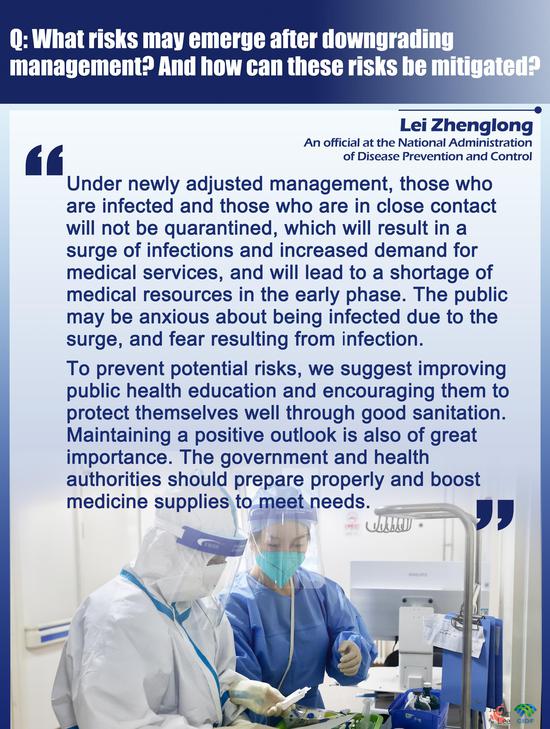

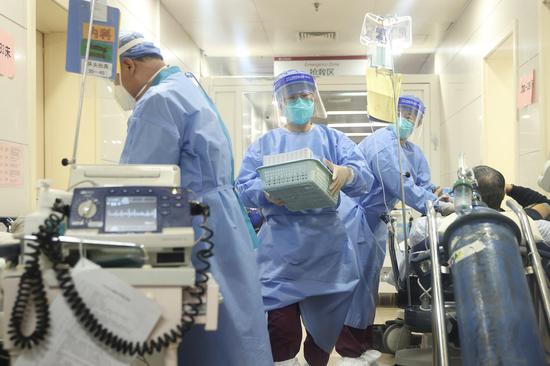







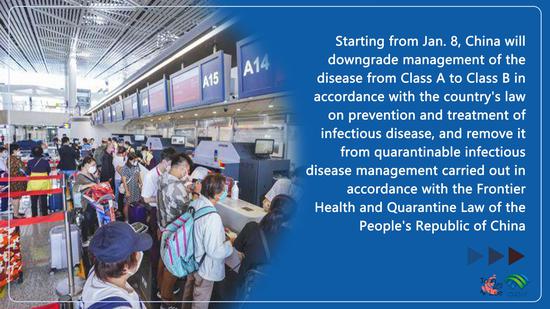


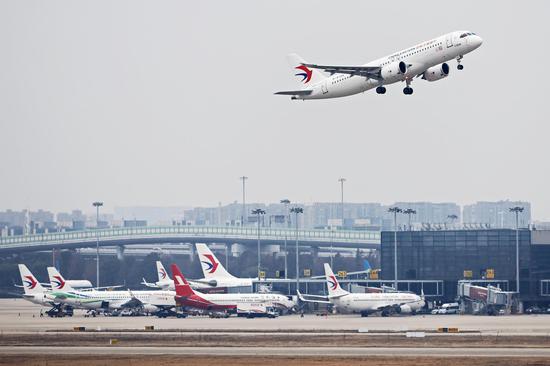








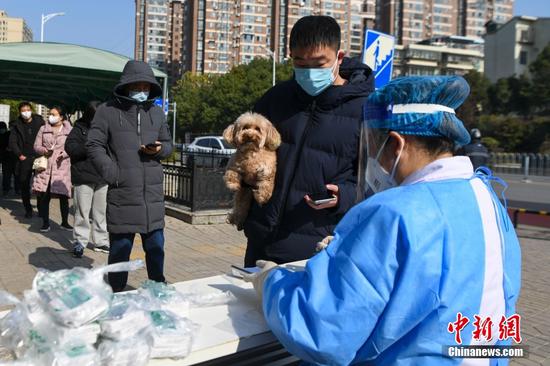











 京公网安备 11010202009201号
京公网安备 11010202009201号